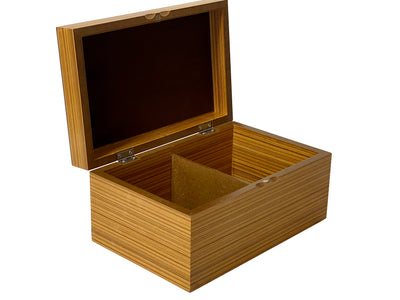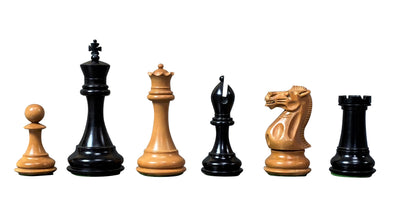Why Play Chess?
WHY PLAY CHESS GAMES?
Chess for kids is an activity of interminable potential outcomes for the brain, one which creates mental capacities utilized all through life: focus, basic considering, theoretical thinking, critical thinking, example acknowledgment, vital arranging, inventiveness, investigation, amalgamation, and assessment, to give some examples. Chess can be utilized successfully as a device to show critical thinking and conceptual thinking. Figuring out how to take care of an issue is more critical than taking in the answer for any specific issue. Through chess, we figure out how to dissect a circumstance by concentrating on imperative variables and by dispensing with diversions. We figure out how to devise imaginative arrangements and put an arrangement enthusiastically. Chess lives up to expectations in light of the fact that it is self-rousing. The amusement has interested people for right around 2000 years, and the objectives of assault and barrier, reaching a state of perfection in checkmate, motivate us to delve profoundly into our mental stores.
Chess for kids has been played and delighted in by individuals around the globe for two thousand years. In the event that there was a grant for a round of the thousand years, it would fit in with chess. The amusement is said to have been developed in India around the fourth-century b.c., by a Brahman named Sissa at the court of the Indian Rajah Balhait, where it was called chaturanga, despite the fact that its soonest say in writing happened in a Persian sentiment, the Karnamak, expounded on 600 a.d. Alexander the Great's success of India conveyed the diversion west to Persia (Lasker, 1949, pp. 3-5). It moved east from India along overland exchange courses into the Orient and west from Persia into Arabia, where chatrang, as the diversion was later called, then spread crosswise over northern Africa and into Europe when the Moors attacked Spain. Ajedrez (as it was known by the Spanish) spread rapidly through Europe and had spread much before north from Persia into Russia so that before the revelation of the Americas chess had a firm and built up taking after on three landmasses as an incomparable interest and test of mental capacity, a stylish marvel delighted in by both aristocrat and worker (or should we say lord and pawn?).
LEARN CHESS EARLY AGE
Numerous striking individuals in history made chess their most loved interest. The amusement's interest was grasped by Queen Isabella and King Ferdinand of Spain, Churchill, Napoleon, Voltaire, and the colossal mathematician, Euler, to name a few. Benjamin Franklin, in his work, The Morals of Chess, viewed chess as more than only an unmoving diversion, attributing a few "important" characteristics of the brain, helpful throughout human life, [that] are to be procured or fortified by it, to wind up propensities, prepared for all events. For Life is a sort of Chess… " (Franklin, 1776). Franklin listed these qualities as "1. Premonition… 2. Meticulousness… 3. Alert… and 4. Constancy in any expectation of great assets." In this sense, we may acknowledge Franklin for being one of the first to guess that chess reinforces "profitable characteristics of the brain" and to open the request concerning regardless of whether chess makes one more brilliant and chess for kids
Numerous parallels have been drawn between math, music, and chess. Lasker (1949) states:
Numerical intuition is, for the most part, held to be pretty much firmly identified with the sort of deduction done in chess. Mathematicians are in reality attracted to chess more than most different diversions. What is less generally known is that often mathematicians are just as unequivocally pulled in to music. Numerous musical artists don't respond to this fascination, however, I solidly accept that this is chiefly because of their absence of colleague with arithmetic, and to the far-reaching disarray of math with "figuring."
A fascinating sensation that connections arithmetic, music and chess is the way that kid wonders have been known just in these three fields. That kids have never created a masterwork in painting, figure, or writing appears to be just characteristic when we consider their restricted experience of life. In music, chess, or math, that experience is not required. Here, kids can sparkle, in light of the fact that local blessings are the predominant component. Stylish affectability and capacity to think consistently are sure inherent qualities. How, something else, could Mozart have created a minuet, and really recorded it, before he was four years old? How could Gauss, before he was three years of age, and before he knew how to compose, have rectified the aggregate of a protracted expansion he saw his dad do? How could Sammy Reshevsky play ten amusements of chess all the while when he was just six? so chess for kids is awesome
The thinking fixing in a chess mix is dependable of prime significance, despite the fact that distinctive creative energy will make a chess player consider potential outcomes that won't jump out at a less innovative philosopher. (p. 142)
The above section demonstrates theoretical thinking, a by and large acknowledged quality intrinsic in both science and music is of prime significance in chess for kids
Create investigative, manufactured and choice-making abilities, which they can exchange to genuine living, and chess for kids
Figure out how to take part in profound and exhaustive chess research which will help them manufacture their trust in their capacity to do scholarly research,
LEARNING CHESS IS AWESOME!
Chess unmistakably is a critical thinking instrument, a "perfect approach to study choice-making and critical thinking in light of the fact that it is a shut framework with obviously characterized principles" (Horgan, 1988). At the point when confronted with an issue, the first step is to "dissect [it] in a preparatory and impressionistic route: surveying the issue" (Horgan, 1988, p. 3), potentially searching for examples or closeness to past encounters. "Comparability judgments may include elevated amounts of dynamic thinking" (Horgan, 1988, p. 3). As in math, which may be characterized as the investigation of examples, for example, an acknowledgment in chess is of prime significance in critical thinking. Subsequent to perceiving similitude and example, a worldwide method can be created to tackle the issue. This includes creating options, an inventive procedure. A decent chess player, similar to a decent issue solver, has "obtained an immeasurable number of interrelated schemata" (Horgan, 1988, p. 3), considering great different options for rapidly and effectively ring a bell. These options should then be assessed, utilizing a procedure of computation known as choice tree examination, where the chess player/issue solver is figuring the allure of future occasions taking into account the option being examined. Horgan (1988) found that "the computation may go a few to eight or ten pushes forward. This stage requires genuine fixation and memory capacities… [or]… visual symbolism" (p.4). Youngster chess specialists were considered by Schneider, Gruber, Gold, and Opwis (1993), and were discovered ready to store bigger "lumps" of data, or "restored construction," than were non-master grown-ups, and had the capacity review them much quicker than the grown-ups when reproducing a position. When a suitable option for tackling the issue is come to and executed, it can be assessed. Chess players, similar to all great
Need chess for kids? various sets for Schools and Clubs? visit chess4schools.co.uk









